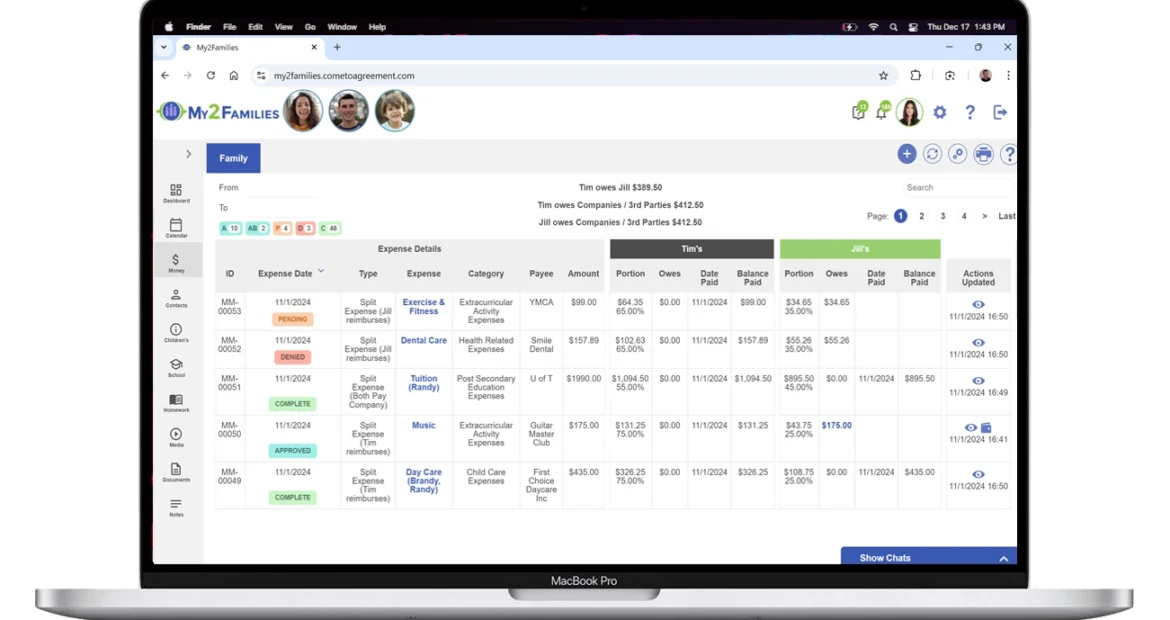Separation and divorce can be emotionally challenging for parents and children alike. One of the most important steps in navigating this transition is developing a parenting plan that addresses the needs and best interests of the children while providing clarity and structure for both parents. A well-crafted parenting plan helps avoid future conflicts by clearly defining parental responsibilities, custody arrangements, visitation schedules, and other key issues. Below are the critical elements and considerations that separated parents should address when creating a parenting plan for inclusion in a separation agreement or parenting order.
1. Custody Arrangements and Parental Responsibility
Decision-Making Responsibility: This determines who has the authority to make major decisions about the child’s welfare, education, health care, and religious upbringing. Decision-making responsibility needs to be clearly outlined. Parents must decide how significant decisions related to health, education, and religion will be made, either jointly or by one parent. USA, Canada, UK and Australia use different terms or labels, but the responsibility to make wise decisions for the child remains quite similar:
- Joint or Shared Legal Custody: Both parents share decision-making responsibilities, requiring cooperation and communication.
- Sole Legal Custody: One parent has the exclusive right to make these decisions.
Parenting Time, Parental Responsibility or Physical Custody: This defines where the child will live.
- Shared Parenting Responsibility or Joint Physical Custody: The child splits time between both parents, either equally or according to a set schedule. Having a set schedule also allows for parenting time changes as requested by either parent or even based on a child’s schedule.
- Sole Physical Custody: The child resides primarily with one parent, with the other parent having visitation rights.
Parents, or a court in challenging circumstances, must evaluate the child’s best interests when deciding custody arrangements, considering factors such as proximity to schools, stability, and each parent’s ability to provide care.
2. Parenting Time, Living Arrangements and Visitation Schedules
Establishing a clear and detailed visitation schedule is vital to reduce misunderstandings and conflicts. A comprehensive plan must define the child’s primary residence and schedule for contact with their other parent or a shared parental residential schedule. Parenting time refers to the periods when a parent is responsible for the child. In the USA visitation schedules are typically established if one parent has primary or sole physical custody. Schedules can range from alternating weekends and holidays to more complex arrangements. Shared parenting time occurs in Canada when a parent has the child for at least 40% of the time.
Elements to include:
- Regular Visitation or Contact Arrangement: Weekdays, weekends, or rotating schedules that reflect the parents’ work obligations and the child’s needs.
- Holiday and Vacation Time: A specific division of holidays and school vacations. Parents may alternate holidays annually or split them. Special considerations are needed for holidays, school breaks, and vacations to avoid future conflicts. Parenting plans often specify how holidays are divided, including winter and summer vacations as well as Travel Permission requirements or guidelines for domestic and international travel with the child.
- Special Occasions: Birthdays, Mother’s Day, Father’s Day, and other significant events may require specific details so parents can share time with children fairly.
Consideration should be given to daycare arrangements, who will spend time with young children if the residential parent is unable to be with the child, transportation responsibilities, pickups and drop offs, and any other special arrangements needed for each parent or child as part of the parenting plan, such as medical and dental appointments.
3. Communication Between Parents
Effective communication is the foundation of successful co-parenting. A parenting plan should specify how parents will communicate regarding the child’s needs and schedules. Establishing clear guidelines for communication between parents and with children is crucial.
- Methods of Communication: Options include phone calls, text messaging, email, or co-parenting apps. Parents are encouraged to maintain open lines of communication, to share important information about their child’s well-being, notifying each other of significant events and sharing school or medical information.
- Frequency of Communication: Setting expectations for regular updates and check-ins.
- Decision-Making Processes: Outlining how joint decisions will be made, including a process for resolving disagreements.
4. Health and Medical Care
Medical decisions and access to health records are crucial considerations. Some issues to consider when creating a parenting plan are:
- Decision-Making Authority: Who will make medical and dental care decisions?
- Access to Records: Both parents typically retain the right to access the child’s medical records.
- Insurance Coverage: Identifying which parent will provide health insurance and how costs will be shared.
5. Education, Schooling and Extracurricular Activities
Decisions about education can significantly impact the child’s well-being and stability. Parenting plans often include:
- School Enrolment: Agreement on where the child will attend school.
- Parent-Teacher Communication: Both parents should have the right to participate in school-related activities and receive updates.
- Extracurricular Activities: Agreement on participation, transportation and costs for activities outside of school.
- Impact on Visitation: Revisions to visitation schedules in the event of a child’s extracurricular activity schedule and the impact on siblings.
- Travel Permissions: Guidelines for domestic and international travel with the child.
6. Religious Upbringing
- Parenting plans typically determine the religious values parents wish their children to be raised with in their two homes (mom’s and dad’s home).
- As a child matures, parents may need to reassess their religious values.
- If parents date or become involved in a new relationship, consideration for new religious values may be required.
- Determining religious values or having flexibility for those values should be considered prior to finalizing a parenting plan.
7. Behavioral and Emotional Considerations
A child’s emotional and psychological needs should be prioritized in good parenting and in a parenting plan.
- Parental Conduct: Agreements to refrain from disparaging the other parent in front of the child.
- Counseling and Support: Provisions for obtaining counseling or other professional support if needed.
8. Flexibility and Review
Parenting plans should allow for flexibility to adapt to the child’s changing needs.
- Review Periods: Specifying when and how the parenting plan will be reviewed and revised.
- Mutual Agreement for Changes: A process for modifying the plan by mutual consent.
9. Relocation and Change of Residence
Relocation can significantly affect parenting arrangements and must be addressed proactively. Each country or regional jurisdiction may have specific laws; however, relocation typically requires written notice to the child’s other parent, parental agreement, and in some cases, court approval if the move affects the existing parenting arrangement.
10. Dispute Resolution
Having a mechanism for resolving future disagreements and parenting issues and conflicts amicably helps avoid litigation. Parenting plans often include mediation or collaborative law or arbitration clauses for resolving disputes and courts may require parents to attempt dispute resolution before litigating.
11. Child Support, Child Maintenance and Financial Responsibilities
A parenting plan or court order must address financial responsibilities to ensure the child’s needs are met. Although child support is typically addressed separately, it is an integral component of co-parenting arrangements.
- Child Support: The amount, payment frequency, and method of payment should be clearly stated, in accordance with jurisdictional guidelines and are typically based on income, parenting time and number of children requiring support.
- Additional Expenses: Agreements on extracurricular activities, medical expenses not covered by insurance, educational costs, other specific needs or child related expenses, and how those expenses are shared should be agreed to in the parenting plan.
- Tax Considerations: Clarifying which parent will claim the child as a dependent for tax purposes.
Summary
A comprehensive parenting plan minimizes conflict and promotes stability and consistency for children. Addressing custody, visitation, communication, finances and other important issues ensures clarity and reduces ambiguity. Parents are encouraged to work together, prioritize their children’s best interests, and seek legal guidance to create a plan that is both practical and enforceable.
My2Families Co-Parenting Apps allow co-parents to share all required children’s information appropriately in your agreed to Parenting Plan. My2Families is flexible and allows for Parenting Schedule changes with all the requests and approvals required to track changing schedules.
Read about My2Families and Signup today.
When Children Do Well, Parents Do Well
When Parents Do Well, Children Do Well






















